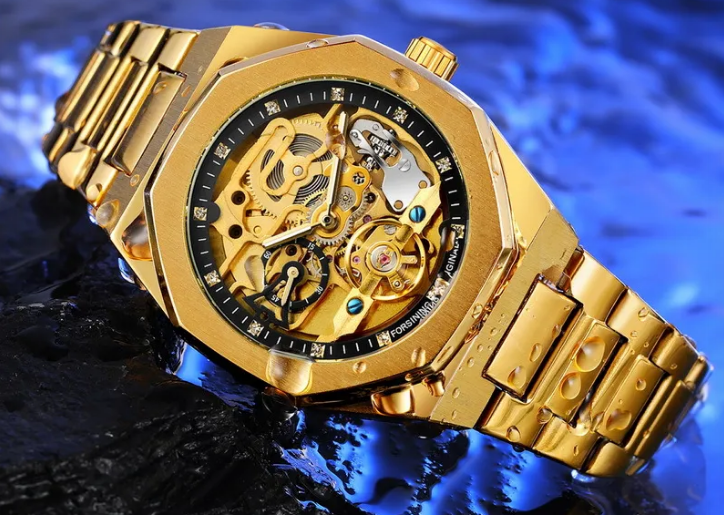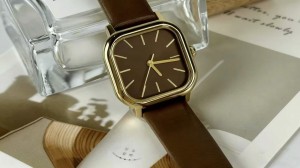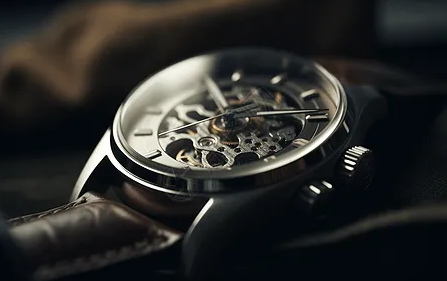> In the ticking of the hands, your choice is not just a timekeeping tool, but a statement of personal taste.
In the world of watches, the debate between quartz and mechanical timepieces never ends. For consumers looking for the perfect wristwatch, this is not just a technical choice, but a reflection of personal lifestyle and values. Quartz watches are known for their incredible accuracy and low maintenance costs, while mechanical watches represent the crystallization of centuries of watchmaking craftsmanship, carrying the essence of human mechanical wisdom.
How They Work: Electronic Precision vs Mechanical Art
The heart of a quartz watch is a tiny quartz crystal. When an electric current passes through it, the quartz crystal vibrates at a highly stable frequency up to 32,768 times per second. This incredible stability is converted into the movement of the hands through a circuit, giving quartz watches unprecedented accuracy.
In contrast, a mechanical watch is a micro-mechanical universe. It stores energy through a mainspring and releases it regularly via an escapement system to drive the movement of the hands. The rotation of each gear and the release of each spring represent the exquisite embodiment of physical principles.
Mechanical watches can be divided into manual-wind and automatic types. Manual movements require daily rotation of the crown to wind the mainspring, while automatic movements use the motion of the wrist to drive a rotor that winds the watch.
Accuracy Comparison: Technology vs Craftsmanship
When it comes to precision, quartz watches are undoubtedly the winner. A standard quartz watch has a monthly error of only about ±15 seconds, which is almost negligible. This stability makes quartz watches ideal for those who demand absolute accuracy.
Mechanical watches, being affected by temperature, position, magnetic fields, and component wear, have relatively lower timekeeping accuracy. An ordinary mechanical watch is considered within normal range if it has a daily error between -5 and +16 seconds. Even a finely tuned chronometer-certified mechanical watch has a daily error of -4 to +6 seconds.
Maintenance Costs: Simple vs Complex Daily Care
Maintaining a quartz watch is extremely simple mainly replacing the battery every 2-3 years. Some lithium batteries can even last 7-8 years. This low-maintenance characteristic makes quartz watches ideal companions for people with fast-paced lifestyles.
Mechanical watches require more attention and care. They should undergo a comprehensive service every 5-7 years, where a professional technician cleans, lubricates, and adjusts the components. Mechanical watches also need to be kept away from strong magnetic fields and protected from severe impacts and vibrations.
In terms of durability, although some believe mechanical watches have a longer lifespan, the truth is that the running components in quartz watches are the same as those in mechanical watches. High quality quartz watches can provide equally long service periods.
Craftsmanship Value and Emotional Connection
The most appealing aspect of mechanical watches lies in their exquisite craftsmanship and heritage value. Each component is carefully polished and assembled by watchmakers, representing humanity’s ultimate pursuit of mechanical aesthetics. Admiring the precise operation of a mechanical movement through a transparent case back is an endless source of pleasure for enthusiasts.
In comparison, the value of quartz watches is mainly reflected in their high efficiency and practicality. They focus more on providing accurate timekeeping and convenient experience.
The characteristic continuous sweeping motion of the second hand in mechanical watches contrasts sharply with the one-second ticks of quartz watches, which has become a symbolic distinction between the two identities.
Price and Value Retention: Practicality vs Investment
Due to their integrated circuits and mass production, quartz watches have relatively lower production costs, allowing consumers to obtain various functions at more affordable prices.
Mechanical watches, because of their complex mechanical structures and handcrafted processes, typically command higher prices. However, high-end mechanical watches are often regarded as works of art and luxury items, possessing higher investment value and value retention capacity. Some models may even appreciate over time.
How to Choose: Lifestyle Determines the Final Answer
The following types of people might be more suited for quartz watches:
- Professionals pursuing precision and efficiency: If you want your watch to always show accurate time without frequent adjustments.
- For consumers who prioritize practicality and budget: Quartz watches offer multiple functions at more affordable prices, providing excellent value for money.
- Users seeking low maintenance: Quartz watches don’t require daily winding and keep time even when not worn for several days
The following groups might prefer mechanical watches:
- Craftsmanship and tradition enthusiasts: If you appreciate precision mechanical art and pursue traditional watchmaking craftsmanship.
- Individuals seeking investment and collection pieces: High-end mechanical watches often retain value well, especially limited editions or those with complex functions.
- People who value the ritual of wearing: The daily winding or automatic winding through arm movement creates a special connection with time.
- Those needing watches for formal occasions: With their exquisite craftsmanship, mechanical watches are more suitable for formal occasions, business meetings, etc.
For most people, quartz watches are reliable daily companions that win trust with their accuracy and convenience; mechanical watches represent emotional and artistic sustenance, connecting the past with the future, carrying the wisdom and craftsmanship of watchmakers.
Post time: Nov-28-2025







